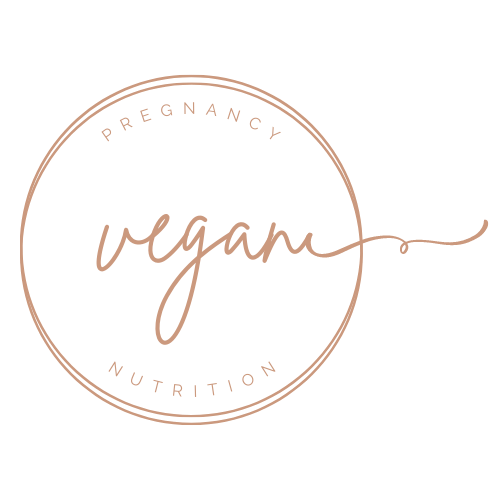3 Super Seeds You Might Be Avoiding But Are Safe: For Vegan Mamas
written by Clarissa Hauber, edited by Maya Bach, MPH, RDN
As a vegan mom-to-be, asking "is __ safe during pregnancy?" is probably one of your most common Google searches.
When you're expecting, foods and drinks you consume daily might now be foods you find on the "foods to limit or avoid" list.
Especially navigating through the world of thousands of plant-based proteins and seeds, it can be confusing to determine what is safe and what is not. You're not alone!
And when it comes to less familiar foods, like hemp seeds, sesame, or flaxseeds, it might seem most straightforward to avoid them altogether.
But the truth is that many of these plants and seeds are perfectly okay and safe to eat!
Tahini
A paste made from sesame seeds, tahini is a savory type of nut butter made famous by middle eastern cuisine. You might see it most commonly drizzled over falafel, spread on sandwiches, or mixed into dips and sauces. Based on a few studies conducted in the past showing contamination in tahini-based products, some people might believe tahini is unsafe and will lead to foodborne illness.
However, the prevalence of bacterial contamination in tahini-based products is very low - low enough that regular consumption of tahini is highly unlikely to lead to illness. Ultimately, tahini is considered a safe food and a great source of calcium during pregnancy. Remember to always follow generally food safety guidelines when it comes to tahini: buy from a reputable brand, use by the expiration date, and store in an airtight container in the fridge.
One of my favorite easy no-cook recipes for tahini? Add a tablespoon on top of a slice of sourdough before topping the toast with smashed blueberries, fresh or defrosted, for a nutritious twist on classic PB&J. If you’re a cinnamon fat, add a sprinkle on top!
2. Hemp hearts
Because hemp is derived from Cannabis, it may be easy to assume it's unsafe or dangerous to consume during pregnancy. Hemp hearts, however, are perfectly safe and very nutritious. The ultimate difference between Cannabis and hemp is tetrahydrocannabinol (THC) and cannabidiol (CBD) - Cannabis has THC and CBD, whereas hemp does not. Therefore, none of the physical effects of Cannabis are associated with consuming hemp hearts.
Hemp hearts are not only a decorative touch to smoothie bowls, avocado toast, and hearty green salads but an excellent source of omega-3 fatty acids, the type of fats that support fetal brain development. Struggling with constipation during pregnancy? Hemp hearts are also excellent sources of dietary fiber to help keep you regular and things moving. Finally, not only are they rich in healthy fats for pregnancy, hemp hearts are excellent plant-based protein sources to support your body and your baby's growth. So, consider adding hemp hearts into your daily diet if you haven't already!
3. Flaxseeds
Another food you might be fond of but maybe avoiding includes flaxseeds. From “flax eggs” to smoothie mix-ins, flaxseeds are nutrient-dense “superfoods” that you’ll want to add to your vegan pregnancy diet.
Flaxseeds are high in dietary fiber, which can help relieve pregnancy-related constipation. Just be sure to add an extra glass of water when eating flaxseeds because, like with anything high in fiber, it may make your constipation even worse.
While a tablespoon or two to your daily routine is considered safe, aim to avoid concentrated sources like flaxseed oil or capsules. Avoid raw and unripe flaxseeds as they may contain toxic compounds and decrease blood clotting during pregnancy. While some studies have linked a high intake of flaxseed to an increased risk of preterm birth, consuming a small amount of ripe, fresh flaxseeds is generally considered safe.
The best way to enjoy flaxseeds? Buy them whole and grind right before use, or buy them preground. When you eat flaxseed ground, your body can better absorb the nutrients. Remember to use by the expiration date and store in the refrigerator in an airtight container to preserve their nutrient quality and freshness.
Bottom Line:
On top of navigating all of the physical changes associated with pregnancy, it can be overwhelming to figure out what foods you can and cannot consume - especially as a vegan mom. If unsure whether a particular food or beverage is safe for you to consume, always reach out to a licensed healthcare provider.
Building a safe diet during pregnancy can be a stressful experience, so be patient and go easy on yourself!
_____________
Sources:
NIH: Flaxseed and Flaxseed Oil
U.S. FDA
Alberta Health Services
Ready to feel good about YOUR vegan pregnancy?
Join like-minded women inside the Vegan Pregnancy Collective to get the tools you need so you can stop worrying and wasting time Googling all things vegan pregnancy!


